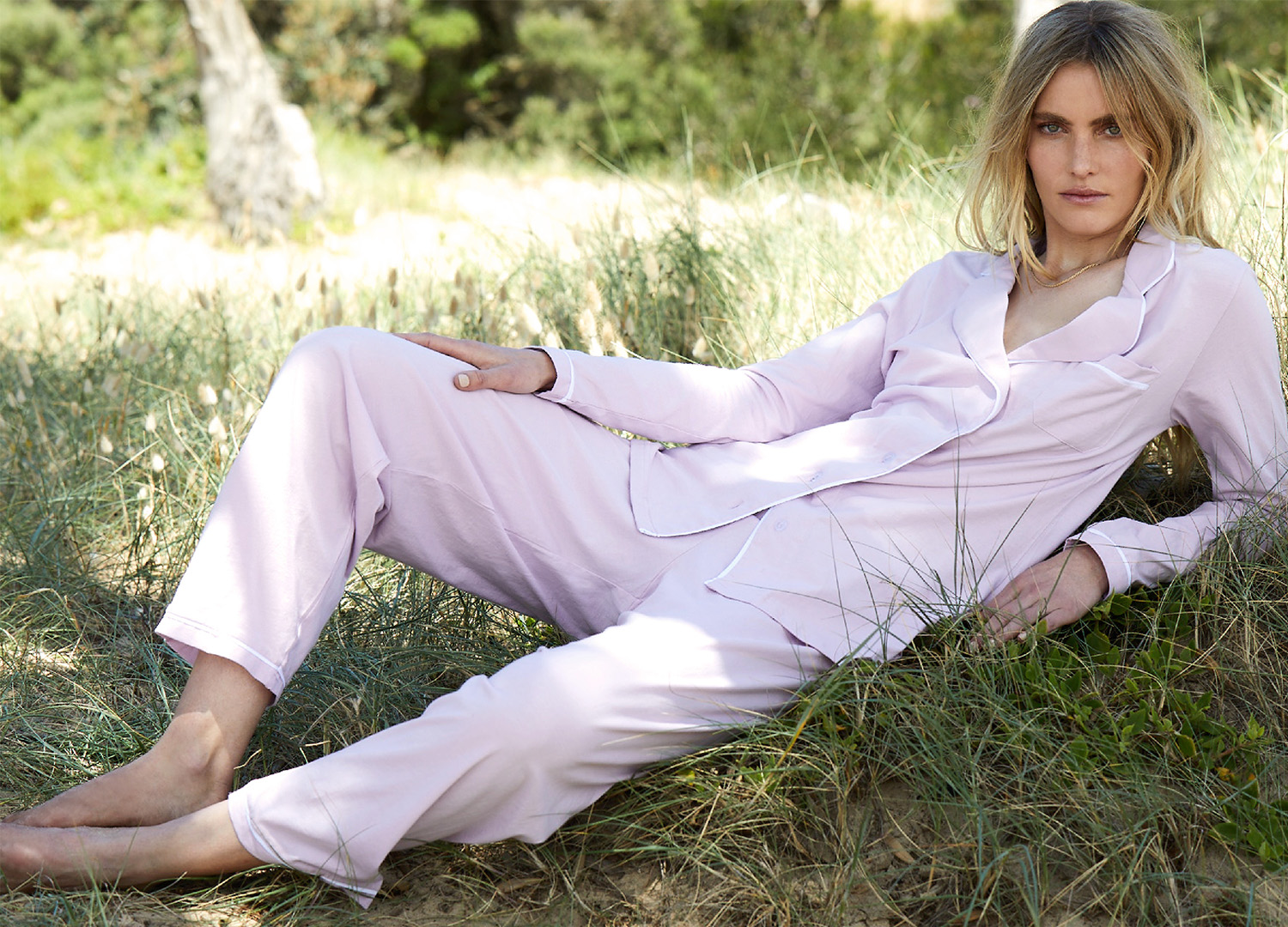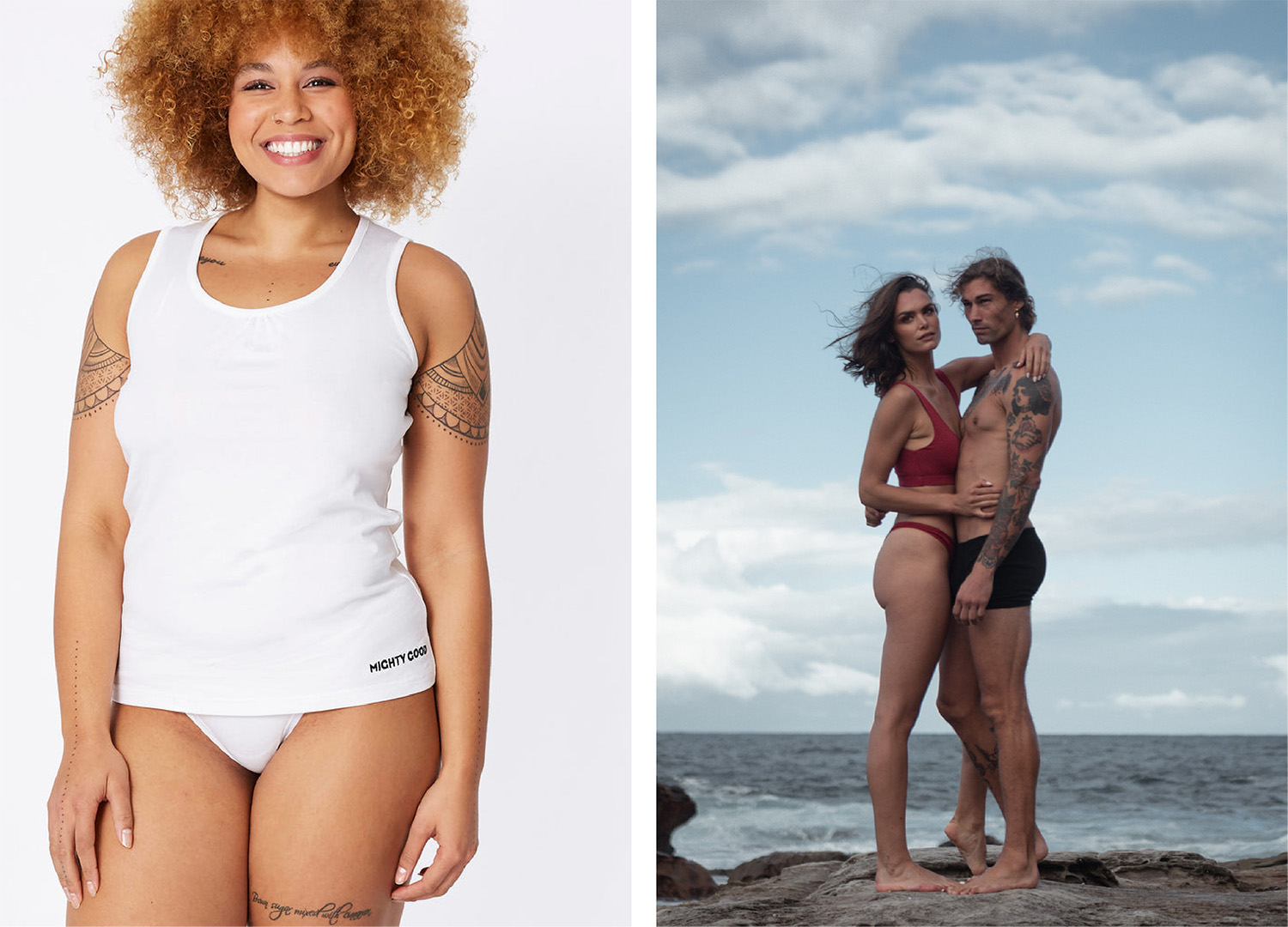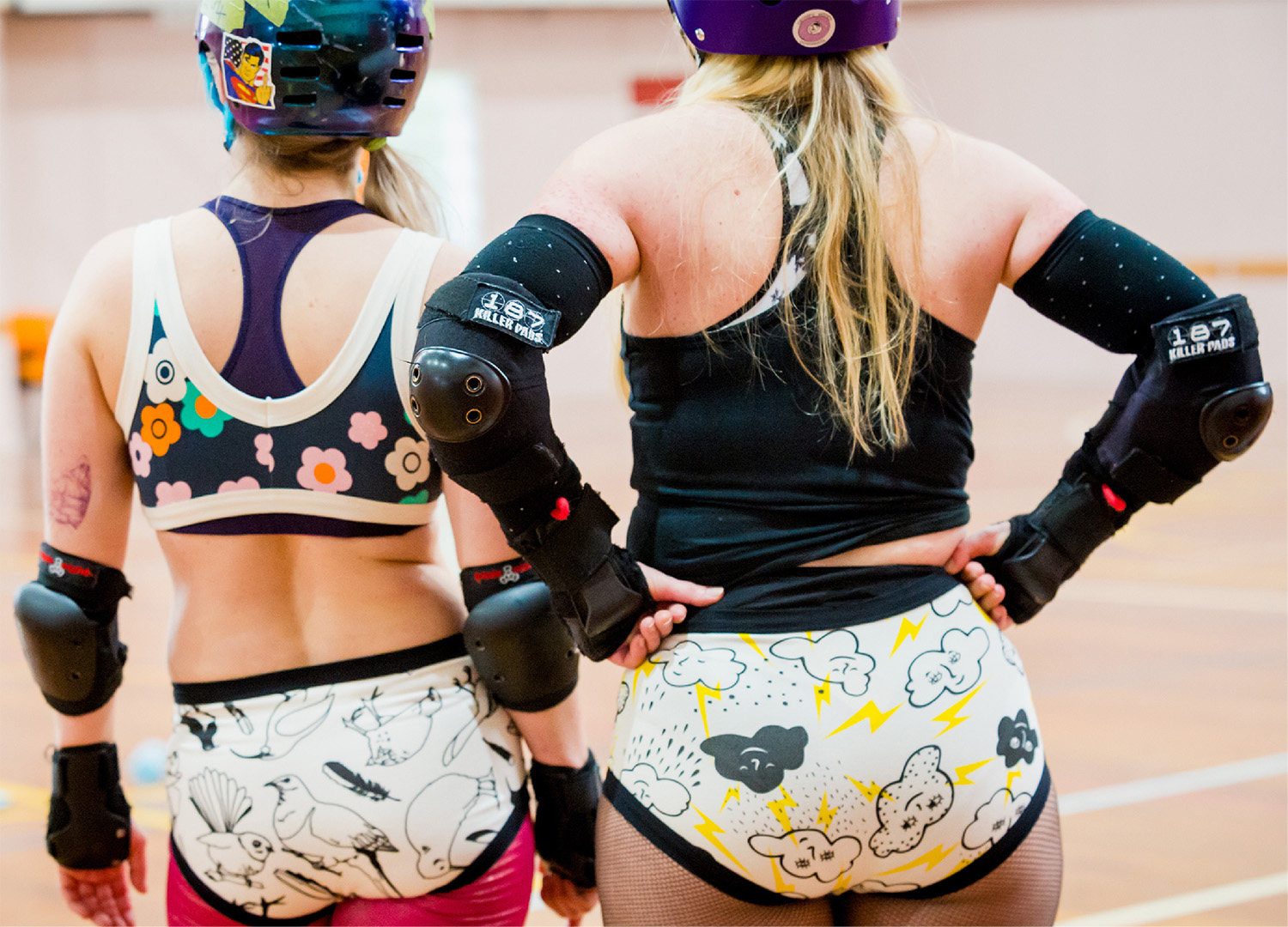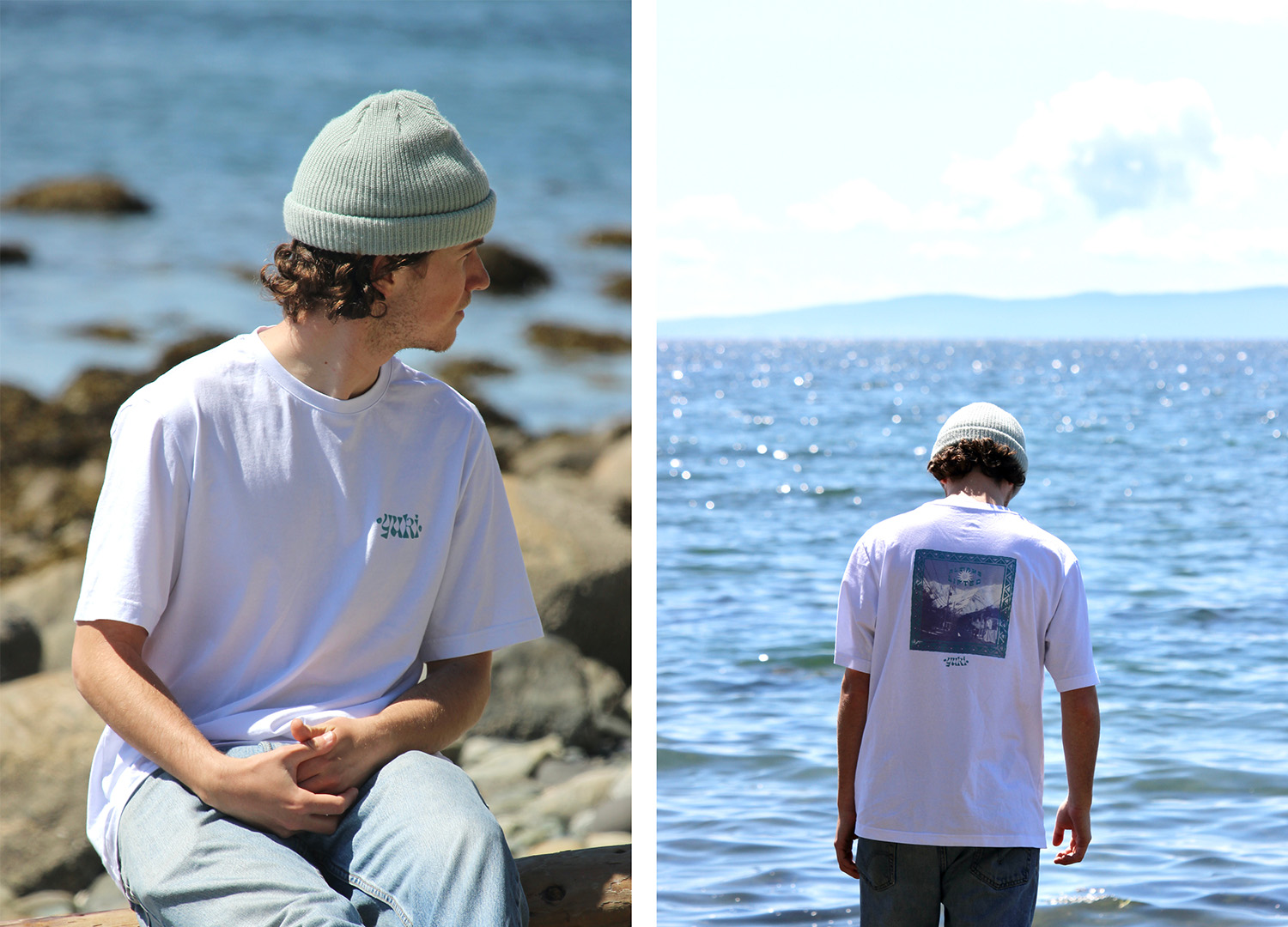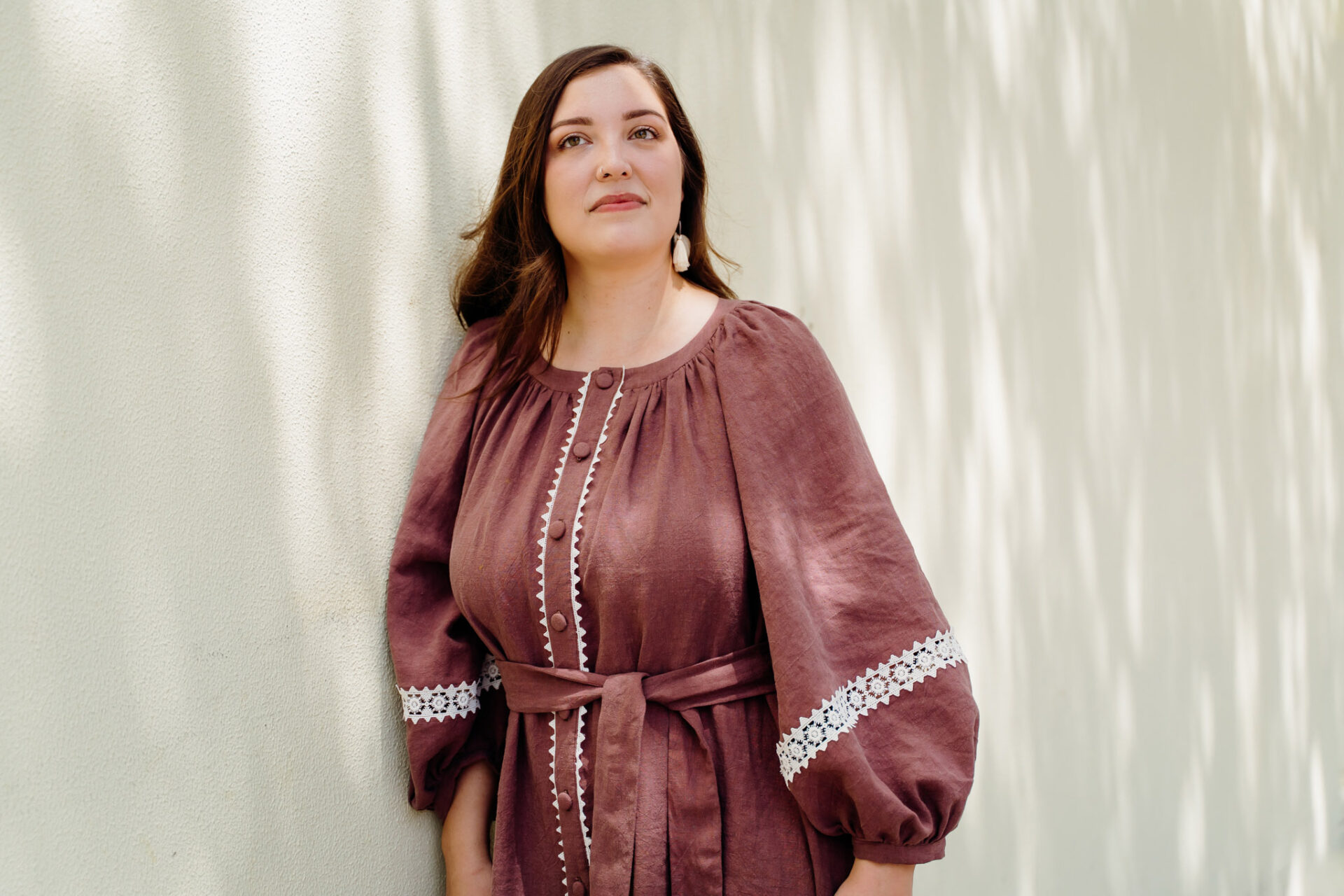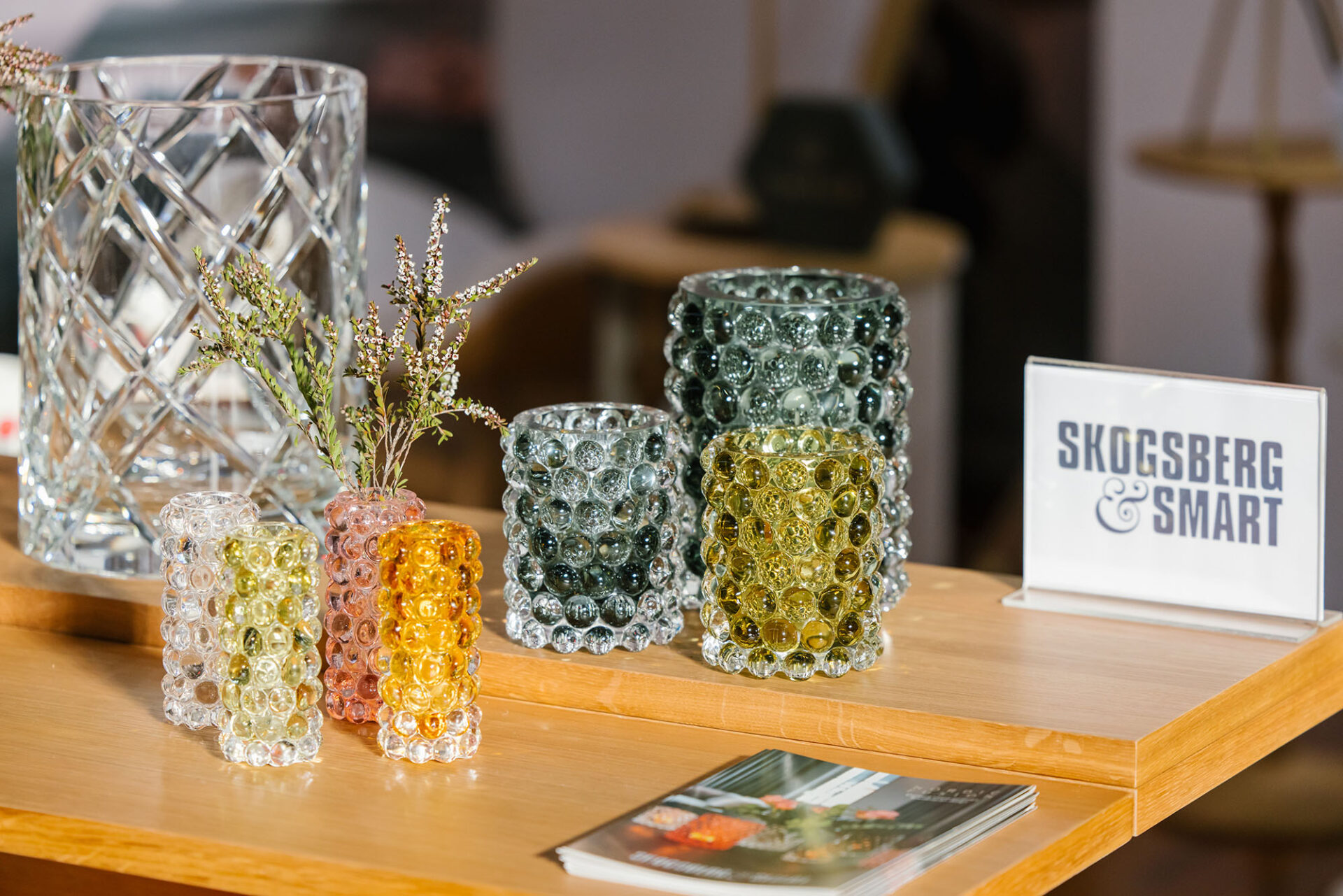Cottoning On: Where to Get Your Fix of Fairtrade Cotton
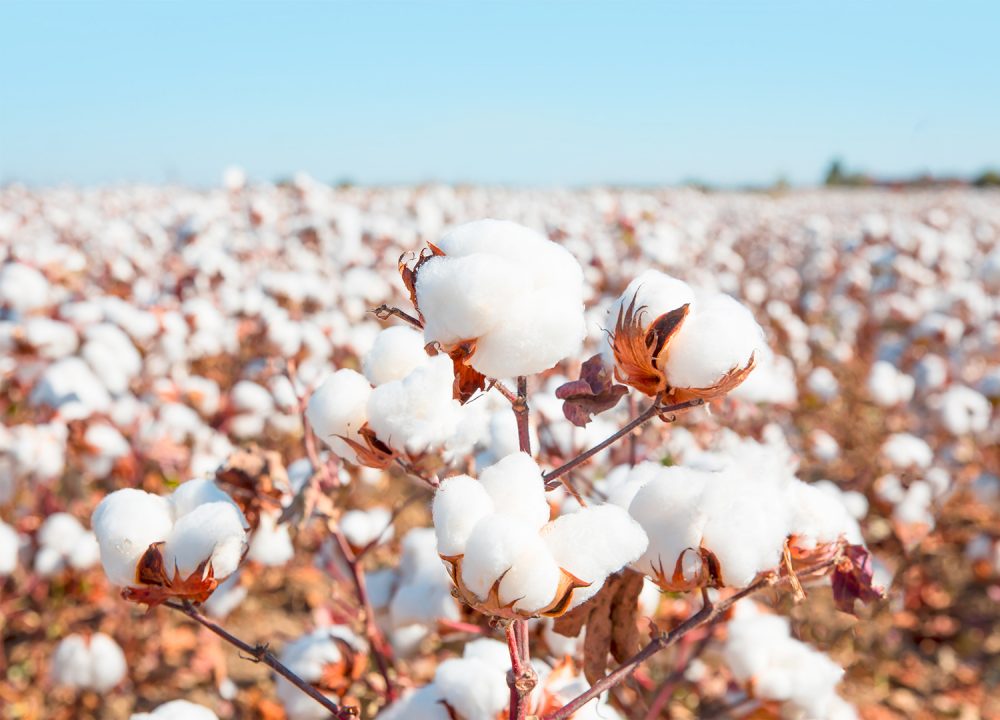
- Words by Peppermint
words EMILY LUSH
It’s been an immensely challenging 24 months for the fashion industry, but those most vulnerable to market changes – the cotton farmers – have felt the impacts of the COVID crisis more acutely than others.
The world’s largest cotton producer, responsible for 94% of global Fairtrade-certified cotton, India has been dealt a particularly tragic hand. As the pandemic unfolded, many of the estimated 60 million workers who depend on the textile and clothing industry for their livelihoods were left out in the cold.
Two decades ago, when Fairtrade International launched the Fairtrade Cotton Standard to build resilience among farmers, they could never have predicted COVID-19 or the challenges it would bring. Yet, its initiatives – such as the Fairtrade Minimum Price (a mechanism that guarantees farmers can cover their cost of production) and the Fairtrade Premium (an additional sum used to fund social, economic and environmental projects deemed pressing by the community) – have helped farmers survive in the face of a faltering supply chain.
In the early days of the pandemic, as ginning mills ground to a halt, exports were suspended, factories closed and many retailers cancelled their orders, cotton farmers were met with cash-flow issues and a delay in the supply of seeds, which put sowing behind schedule. On top of logistical difficulties, the uncertainty took a psychological toll. “There was apprehension among farmers during the lockdown stage about the future of the market, especially since cotton is a non-food crop and was in low demand,” reflects Amit Das, a Fairtrade cotton industry spokesperson based in India. Economic hardship, combined with predictions that cotton prices would sink, forced some farmers to raze their fields and start growing food for their families instead.
In the second half of 2020, Fairtrade stepped in to implement an emergency relief project with German NGO GIZ, providing vegetable and cotton seeds and specialised training to 2150 farmers in India’s cotton-growing states. With Fairtrade’s help, some were able to continue growing cotton in a sustainable way throughout the pandemic.
“Fairtrade subsidised the certification fee for all producers in 2020,” Amit adds. “This was a great support for them to continue to work in the Fairtrade system despite less or no sales.” In the wake of COVID, continued access to the Fairtrade Premium ensures communities can “focus on social, economic and environmental development, which would not have been possible without the Fairtrade intervention,” Amit explains.
The long-term implications of the COVID crisis for India’s cotton industry remain to be seen. “At the farm level, practices remain almost the same,” Amit says. “But at an industry level, it’s still too early to see the change.” While demand and pricing for organic cotton has skyrocketed in recent months, Fairtrade continues to play a crucial role in bolstering resilience to other threats – including climate change.
Amit hopes that the events of the past two years might help the world see farmers – so long undervalued – in a different light. “The pandemic has shown the harsh reality for farmers at the field level,” Amit concludes. After all, when we so desperately needed masks and PPE, it was cotton growers in India who supplied the raw materials. “Consumer awareness needs to increase to ensure people know about the conditions of the cotton farmers and how Fairtrade has enabled them to address their needs.”
Macpac
Wilderness warriors Macpac took an important step in the right direction last year, partnering with Fairtrade to ensure their tees and hoodies are made with Fairtrade-sourced organic cotton. Macpac has also committed to driving transparency in the cotton supply chain, signing the Responsible Sourcing Network’s Uzbek and Turkmen Cotton Pledges to help end slavery.
Organic Crew
“Be informed, be involved and make a difference” is the mantra of Melbourne apparel brand Organic Crew. Founded by Mel Lechte in 2016, all of the label’s cotton is Certified Organic and sourced from India – including from Fairtrade-certified cooperatives that support local farmers and community initiatives – before the garments are made in Melbourne and Kolkata.
Mighty Good Basics
Working with three organic and Fairtrade cotton organisations across India, Mighty Good Basics is committed to becoming a fully circular business by 2025 – promoting fair trade practices across its entire supply chain. This commitment has been recognised by others too, with the company scoring an A+ in the Australian Ethical Fashion Report for the last six years.
Thunderpants
Since 1995, sisters Josie and Sophie Bidwill have been bringing us Thunderpants – the organic, Fairtrade-certified undies and clothing brand known for comfort and a generous dose of cheek and humour. Combining local production processes with Certified Organic Indian cotton and a wedgie-free fit, the New Zealand brand’s range sports fun, unique and exclusively designed prints.
Yuki Threads
Shred the slopes in Fairtrade-certified threads that don’t compromise on technicality or warmth. Helping producers achieve sustainable and equitable trade relationships, Yuki Threads’ cotton is GOTS-certified with synthetic fabrics made from recycled fibres. Artisans in the supply chain also work in certified fair conditions thanks to social compliance auditing. Powder to the people!
Etiko
The first Fairtrade-certified fashion brand in the southern hemisphere, Etiko pioneered ‘ethically made’ in Australia. Achieving an A+ in every Australian Ethical Fashion Report since 2013, its range of organic and vegan apparel uses cotton produced by farmers paid fair prices and Fairtrade premiums and audited by independent fair trade and organic certification bodies.
READ MORE – The Good Bean: Get Your Fix of Fairtrade Coffee
THIS ARTICLE HAS BEEN CREATED IN PARTNERSHIP WITH OUR FRIENDS AT FAIRTRADE AUSTRALIA & NZ.
JOIN OUR MAILING LIST
Brighten up your inbox with our not-too-frequent emails featuring Peppermint-related news, events, competitions and more!
explore
More articles
Look, I don’t want to make anyone panic but IT’S DECEMBER!!! If you’re planning to give homemade gifts, you’re going to have to act fast. …
Hang out with us on Instagram
“In the 1940’s, Norwegians made and wore red pointed hats with a tassel as a form of visual protest against Nazi occupation of their country. Within two years, the Nazis made these protest hats illegal and punishable by law to wear, make, or distribute. As purveyors of traditional craft, we felt it appropriate to revisit this design.”
Crafters have often been at the heart of many protest movements, often serving as a powerful means of political expression. @NeedleAndSkein, a yarn store in Minnesota, are helping to mobilise the craftivists of the world with a ‘Melt The Ice’ knitting pattern created by @Yarn_Cult (with a crochet pattern too), as a way of peaceful protest.
The proceeds from the $5 pattern will go to local immigrant aid organisations – or you can donate without buying the pattern.
Raise those needles, folks – art and craft can change the world. 🧶
Link in bio for the pattern.
Images: @Gather_Fiber @NeedleAndSkein @a2ina2 @KyraGiggles Sandi.204 @WhatTracyMakes AllieKnitsAway Auntabwi2
#MeltTheIce #Craftivism #Knitting #CraftForChange

TWO WEEKS TO GO! 🤩
"The most important shift is moving from volume-led buying to value-led curation – choosing fewer, better products with strong ethics, considered production and meaningful stories. Retailers have real influence here: what you buy signals what you stand for. At Life Instyle, this means using the event to discover and invest in small-scale, planet-considerate brands that align with your values and your customer’s conscience. Consumers don’t need more things; they need better things, and retailers play a key role in selecting, contextualising, and championing why those products matter."
Only two more weeks until @Life_Instyle – Australia`s leading boutique retail trade show. If you own a store, don`t miss this event! Connect with designers, source exquisite – and mindful – products, and see firsthand why this is Australia’s go-to trade show for creatives and retailers alike. And it`s free! ✨️
Life Instyle – Sydney/Eora Country
14-17 February 2026
ICC, Darling Harbour
Photos: @Samsette
#LifeInstyle #SustainableShopping #SustainableShop #RetailTradeEvent

Calling all sewists! 📞
Have you made the Peppermint Waratah Wrap Dress yet? Call *1800 I NEED THIS NOW to get making!
This gorgeous green number was modelled (and made) by the fabulous Lisa of @Tricky.Pockets 🙌🏼
If you need a nudge, @ePrintOnline are offering Peppermint sewists a huge 🌟 30% off ALL A0 printing 🌟 when you purchase the Special Release Waratah Wrap Dress pattern – how generous is that?!
Head to the link in bio now 📞
*Not a real number in case that wasn`t clear 😂
#PeppermintWaratahWrapDress #PeppermintPatterns #SewingPattern #WrapDress #WrapDressPattern

8 Things to Know About January 26 - from @ClothingTheGaps:
Before you celebrate, take the time to learn the truth. January 26 is not a day of unity it’s a Day of Mourning and Survival for Aboriginal and Torres Strait Islander peoples.
It marks the beginning of invasion, dispossession, and ongoing colonial violence. It’s time for truth-telling, not whitewashed history.
Stand in solidarity. Learn. Reflect. Act.
✊🏽 Blog written by Yorta Yorta woman Taneshia Atkinson.
🔗 Link in bio of @ClothingTheGaps to read the full blog
#ChangeTheDate #InvasionDay #SurvivalDay #AlwaysWasAlwaysWillBe #ClothingTheGaps

As the world careens towards AI seeping into our feeds, finds and even friend-zones, it`s becoming increasingly hard to ignore.
We just wanted to say that here at Peppermint, we are choosing to not print or publish AI-generated art, photos, words, videos or content.
Merriam-Webster’s human editors chose `slop` as the 2025 Word of the Year – they define it as “digital content of low quality that is produced usually in quantity by means of artificial intelligence.” The problem is, as AI increases in quality, it`s becoming more and more difficult to ascertain what`s real and what`s not.
Let`s be clear here, AI absolutely has its place in science, in climate modelling, in medical breakthroughs, in many places... but not in replacing the work of artists, writers and creatives.
Can we guarantee that everything we publish is AI-free? Honestly, not really. We know we are not using it to create content, but we are also relying on the artists, makers and contributors we work with, as well as our advertisers, to supply imagery, artwork or words created by humans. AI features are also creeping into programs and apps too, making it difficult to navigate. But we will do our best to avoid it and make a stand for the artists and creatives who have had their work stolen and used to train AI machines, and those who are now losing work as they are replaced by this energy-sapping, environment-destroying magic wand.
Could using it help our productivity and bottom line? Sure. And as a small business in a difficult landscape, that`s a hard one to turn down. We know other publishers who use AI to write stories, create recipes, produce photo shoots... but this one is important to us.
`Touch grass` was also a Merriam-Webster Word of the Year. We`ll happily stick with that as a theme, thanks very much. 🌿

If your fingers are twitching for some crafting, take a peep at this massive list of marvellous makes that can be whipped up in a flash, put together by our Sewing Manager Laura. Ok yes, it was originally a roundup we created for easy Christmas gifts, but now it can be your blueprint for easy craft wins to go on your 2026 making must-do list!
If money and time are slim for you right now – as they are for many of us – these 22 projects will help you avoid the chaos and consumerism of the malls, scratch that creative itch and produce a fun me-made make that won’t break the bank.
Link in bio! 🪡🎨✂️
#PeppermintMagazine #MeMadeGifts #DIYs #EasyWins


